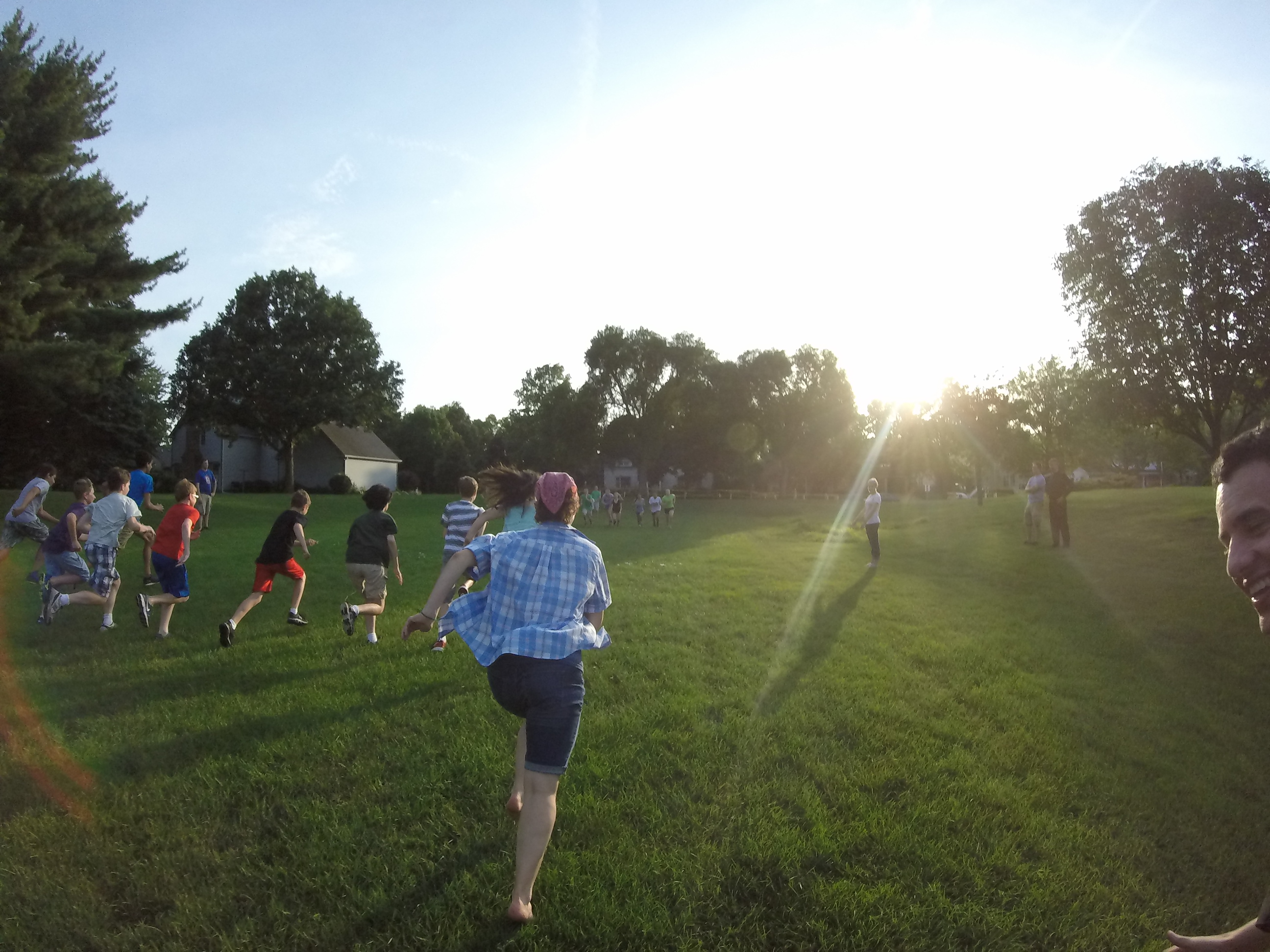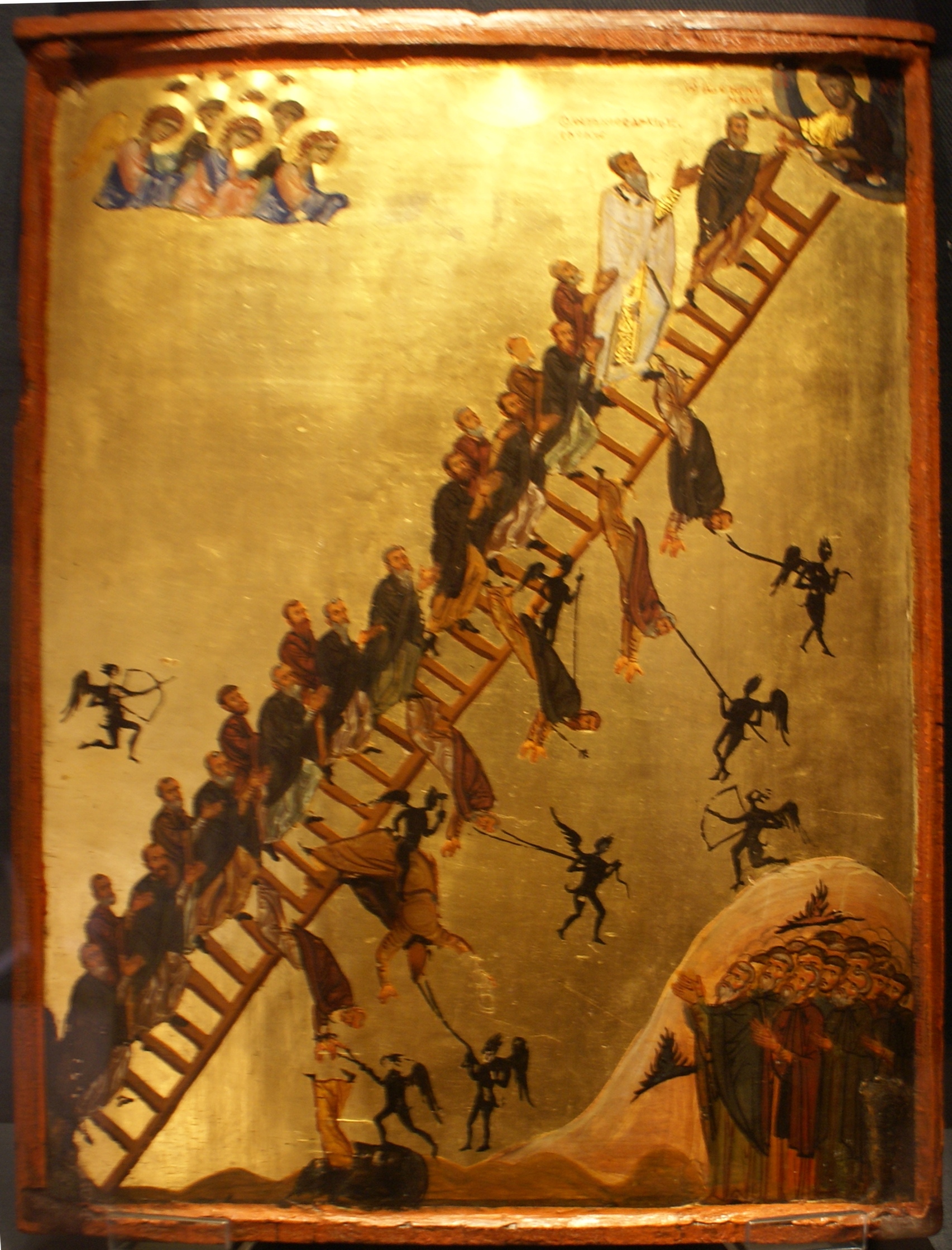What Matters to God
Vocational reflections on the readings for the 18th Sunday in Ordinary Time, Year C.
“…Thus will it be for all who store up treasure for themselves but are not rich in what matters to God.”
I recently met a woman who was the opposite of the rich man in Jesus’ parable. The man has worked hard to fill his barns with grain, and he begins to say to himself, “What shall I do, for I do not have space to store my harvest? This is what I shall do: I shall tear down my barns and build larger ones. There I shall store all my grain and other goods and I shall say to myself, ‘Now as for you, you have so many good things stored up for many years, rest, eat, drink, be merry!'” God responds to the man, saying, “You fool, this night your life will be demanded of you;and the things you have prepared, to whom will they belong?” And Jesus concludes his parable with the line above.

The woman I met was probably rather poor in material terms. But when I came to anoint her in the hospital, it was obvious that she had labored her whole life, storing up the riches that matter to God. Around her bedside and strewn throughout the waiting room were her husband, seven of her eight children, and her granddaughters.
When I prayed with the woman, she was deeply appreciative, whispering to me as I bent down to the level of her hospital bed, “I’m glad you came, because I was feeling bad before.” The husband, children, and grandchildren responded whole-heartedly as I read the prayers from the rite of anointing of the sick. I said to them, “Your mom prays a lot. I’m sure most of her prayers are for you.” They all nodded their heads and smiled. I continued, “The best thing you can do for her now is hold fast to your faith, stay close to Jesus and the Church.”
I could sense that this was a family who had faith, and that the faith came from the matriarch who was sick. God had sent me to anoint her – I was about to leave my office and drive out of town when I got the call to go to the hospital. I was convinced that the Holy Spirit was, in that moment, responding to all of the prayers that this woman had said throughout her life. “You haven’t abandoned Jesus,” I told her, “and so he hasn’t abandoned you.”
She had spent her life on her faith, her marriage, and her children. Unlike others, whose primary goal is build up pleasure, status, and material things, she focused on that which matters to God: faith, hope, and charity. It is important for us to ask ourselves this question, “Am I rich in what matters to God? Or have I spent my time and energy on other things?” I doubt there are any billionaires reading this (if there are, may I please direct you to another page?) But everyone of us can recognize that much of our life has been spent on riches that matter to us. If not money, then security, reputation, and ambition that is not directed toward the glory of God. Like Qoheleth in the first reading from Ecclesiastes, if we honestly look at much of what we’ve spent our time and energy on, we will recognize that it is all “vanity.” It has done nothing but preoccupy us, give us momentary pleasure or security, and then leave us empty-handed and empty-hearted.

One college student who helped with Emmaus Days and Totus Tuus this summer recently said to me, “It’s amazing how, when I was involved with these things, I would sometimes regret that I couldn’t spend my time the way I wanted to since it was so busy and structured. But even more than that, I felt a lot happier, because I was spending myself on prayer and on serving others.” When we spend ourselves on ourselves, and seek to preserve this short little life we have on earth, we waste our energy. But when we “waste” ourselves on what matters to God – serving God and others – we are deeply aware that we’re investing ourselves in something that will last forever. This isn’t easy, because our selfishness is always fighting against us saying, “Take a few more minutes and sleep in; you can pray later. Spend a little while longer on the computer; you’ve worked hard and you deserve it. Don’t stop and talk to this person; they’re annoying and they’ll just suck up your attention.” Our fallen nature always wants to preserve itself, rather than die to itself, even though it is keenly aware that it will eventually meet its end.

St. Paul tells us unequivocally to our sin and selfishness to death. “For you have died, and your life is hidden with Christ in God. When Christ your life appears, then you too will appear with him in glory.” For people like the woman I met in the hospital, who often spend this life in suffering and material poverty, these words are a great comfort: “Your life is hidden with Christ in God.” We can imagine these people approaching Jesus with empty hands, ready to embrace him. And all that they have given up is restored to them a hundredfold. But for many of us, these words of St. Paul are a strong reminder that we need to redirect our time and energy toward that which is more lasting. As Jesus’ parable shows, life is short. There is no time for serving ourselves.
This is something that young people are in desperate need of hearing and understanding. Because of technology, education, and culture, the period of maturation in our Western world is continually extending. Whereas, fifty years ago people were getting married and beginning a family at eighteen, the average age of marriage in the United States is 29 for men and 27 for women. Obviously there are a lot of advantages to waiting until you are older, more mature, and more financially stable before marrying. But one downside to this fact is that our culture is filled with excuses to wait before leaping into a commitment to God. When those around you are still single, the “peer pressure” to commit oneself to a vocation is far less. But what happens instead? If we are honest, we have to admit that we’re often like the man who dreams of building bigger barns to store up all of the things he’s accrued through his work. More education, more work, more money. We’re often caught spending ourselves for the riches that don’t matter to God, rather than beginning the life that Jesus desires for us. Vocations are dangerous adventures because they demand we let go of ourselves and our security. But we know how satisfying this can ultimately be, and we know that God, more than anything or anyone else, deserves our heart and our trust.

One great challenge for us all this week: Give up a thing or activity that isn’t sinful, but feels hard to let go of. When you do, say to Jesus, “Lord, I know that this won’t exist in heaven. Instead, if I arrive in heaven, my soul will be so filled with life and happiness as I gaze on the Trinity, that I will have completely forgotten about this. It will be like a little speck of dirt that falls off of me without my even noticing. Jesus, I know that you died a terrible death to bring me life. Right here and now I want to die to myself and be filled with the life you promise us. I don’t want to wait, because I don’t know how much time I have. There is no solid future, other than the life you promise. I give myself to you now.”
